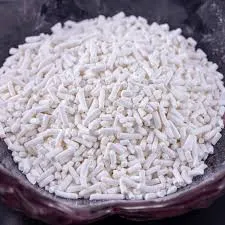
Enhance Your Garden with Premium Manure Fertilizer
The Benefits of Manure Fertilizer in Sustainable Agriculture
In the realm of sustainable agriculture, the use of manure as a fertilizer has gained significant attention over recent years. Manure, a natural byproduct of livestock farming, offers a range of benefits that contribute to soil fertility, plant health, and environmental sustainability. As the global population continues to rise, the need for sustainable farming practices becomes increasingly vital, positioning manure fertilizer as an effective solution for modern agricultural challenges.
One of the primary advantages of manure fertilizer is its nutrient-rich composition
. Unlike synthetic fertilizers, which often contain specific chemical nutrients, manure is a balanced source of essential elements such as nitrogen, phosphorus, and potassium, along with micronutrients. These nutrients are crucial for plant growth and fertility. When applied to the soil, manure can enhance soil structure, improve moisture retention, and promote microbial activity, all of which contribute to healthier plants and higher crop yields.Furthermore, using manure helps to recycle organic matter back into the soil. As manure decomposes, it enriches the soil with organic carbon, which is key for maintaining soil health. This organic matter improves soil structure, increases aeration, and fosters an environment conducive to beneficial microorganisms. The result is a more resilient soil ecosystem that can better withstand droughts and other environmental stresses.
manure fertilizer

In addition to its agronomic benefits, manure fertilizer plays a role in reducing environmental impacts associated with conventional farming practices. By utilizing livestock waste, farmers can minimize the dependency on commercially produced synthetic fertilizers, which often come with high carbon footprints due to energy-intensive manufacturing processes. Moreover, the application of manure helps in reducing soil erosion and nutrient runoff into water bodies, thereby mitigating water pollution and protecting aquatic ecosystems.
However, the use of manure fertilizer is not without challenges. Proper management is essential to maximize its benefits while minimizing potential drawbacks, such as odor issues or pathogen transfer. Farmers must adhere to best practices for manure application, including timing, method, and appropriate quantities, to ensure that the nutrient needs of crops are met without causing environmental harm.
In conclusion, manure fertilizer stands out as a sustainable alternative in modern agriculture. It offers numerous benefits ranging from enhanced soil health and increased fertility to reduced environmental impact. As the agricultural sector continues to evolve, embracing manure as a critical resource can pave the way toward more sustainable and resilient farming practices, ensuring food security for future generations while protecting our planet.
-
Nitrile Rubber Honoring Strict Production StandardsNewsAug.22,2025
-
Aspartame Ingredients Honoring Food Safety ValuesNewsAug.22,2025
-
Fertilizer for Balanced Plant NutritionNewsAug.22,2025
-
Cyanide Gold Processing with High Purity AdditivesNewsAug.22,2025
-
Formic Acid in Textile Dyeing ApplicationsNewsAug.22,2025
-
Aluminum Hydroxide Gel in Skincare ProductsNewsAug.22,2025
-
Regulatory Compliance for Global Mining Chemicals UseNewsAug.12,2025
Hebei Tenger Chemical Technology Co., Ltd. focuses on the chemical industry and is committed to the export service of chemical raw materials.
-

view more DiethanolisopropanolamineIn the ever-growing field of chemical solutions, diethanolisopropanolamine (DEIPA) stands out as a versatile and important compound. Due to its unique chemical structure and properties, DEIPA is of interest to various industries including construction, personal care, and agriculture. -

view more TriisopropanolamineTriisopropanolamine (TIPA) alkanol amine substance, is a kind of alcohol amine compound with amino and alcohol hydroxyl, and because of its molecules contains both amino and hydroxyl. -

view more Tetramethyl Thiuram DisulfideTetramethyl thiuram disulfide, also known as TMTD, is a white to light-yellow powder with a distinct sulfur-like odor. It is soluble in organic solvents such as benzene, acetone, and ethyl acetate, making it highly versatile for use in different formulations. TMTD is known for its excellent vulcanization acceleration properties, which makes it a key ingredient in the production of rubber products. Additionally, it acts as an effective fungicide and bactericide, making it valuable in agricultural applications. Its high purity and stability ensure consistent performance, making it a preferred choice for manufacturers across various industries.





